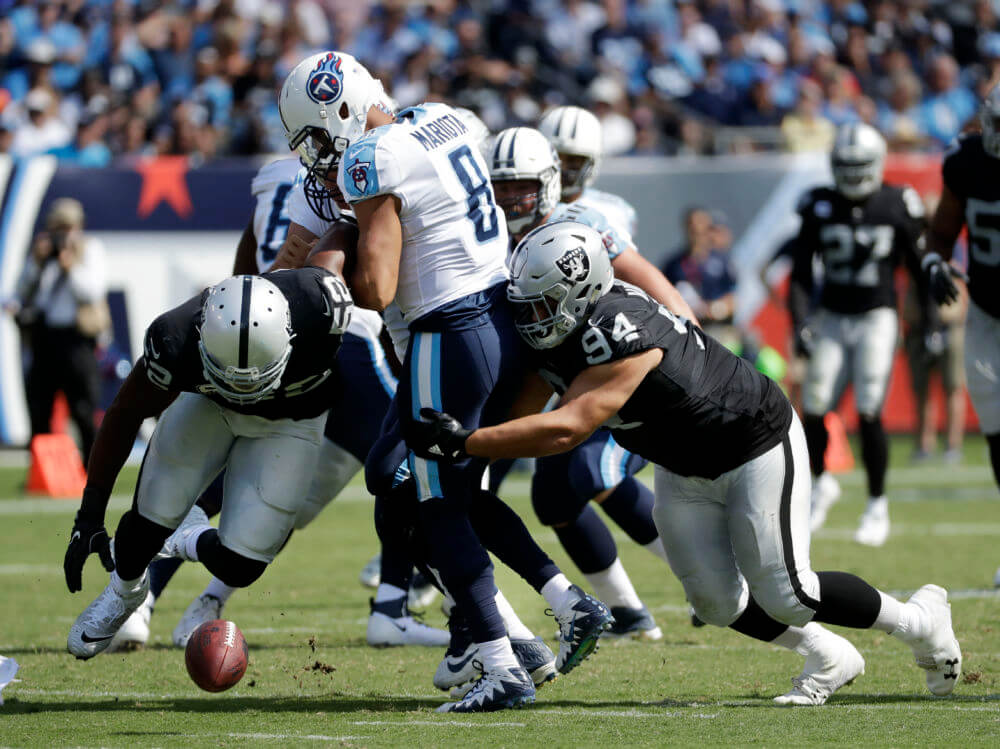NFL Ratings Fumble in Week One, Sports Betting Legalization Hyped as Solution
Posted on: September 16, 2017, 10:00h.
Last updated on: September 15, 2017, 05:51h.
NFL ratings were down 13 percent in week one of the regular football season compared to 2016, and supporters of ending sports betting prohibition in all but Nevada are arguing that liberalizing the industry would help stop the declining audience trend.

NFL executives are blaming hurricanes Harvey and Irma for their dismal 2017 debut, saying Americans were glued to cable news networks and The Weather Channel instead of watching football. It’s more excuses from the league, which blamed the presidential race last fall for declining television numbers.
Viewership for Thursday Night Football, and well as Sunday’s lot of games on FOX and CBS, and ESPN’s Monday Night Football, were all down compared to 2016. The lone bright spot was NBC’s Sunday Night Football matchup between the New York Giants and Dallas Cowboys.
Returning interest to the NFL could come through sports betting, supporters contend. Scandals including national anthem protests, as well as health and safety concerns, have recently beleaguered the league. Media analysts believe the next few weeks is a critical period for the NFL.
“All eyes will be on this season’s rating trends,” media researcher Michael Nathanson said before week one. “Why do we care so much about the NFL? Well, that’s where the money is.”
NFL King in Las Vegas
More money is placed on NFL games at Nevada sportsbooks than any other sport. And it isn’t even close.
Thursday’s night game between the Houston Texans and Cincinnati Bengals attracted more bets at the Westgate SuperBook than any Major League Baseball game that day, and five times as much money as any college football game. Allowing gamblers to legally place financial wagers on NFL games in other states would seemingly grow interest.
A Nielsen Sports study last year found that adults who gamble on the NFL watch 19 more games each year than casual football fans.
PASPA, the Professional and Amateur Sports Protection Act passed in 1992, will soon go before the US Supreme Court. New Jersey is arguing that the law is unconstitutional, as it forces states to impose sports betting restrictions that the federal government hasn’t fully outlawed itself.
PASPA provided exemptions for Nevada, Delaware, Oregon, and Montana, as those states were running some sort of sports wagering activity at the time. Today, only the Silver State takes full advantage of its immunity, while Delaware offers parlay sports betting.
The Supreme Court will consider New Jersey’s sports betting case sometime this fall, and is expected to issue its ruling in early 2018.
Cutting the Cord
Television networks sold $4.2 billion worth of advertisements during the NFL regular season last year, but prices for commercials spots might begin to drop should ratings continue declining.
The NFL will do everything in its power to claim the sport isn’t losing fans. But the reality is that many American households are forgoing traditional cable television packages in favor of streaming and on-demand services.
ESPN has lost over 11 million subscribers since 2011, with more expected in the coming years. The network pays over $8 billion annually to NFL to air Monday Night Football.
No comments yet